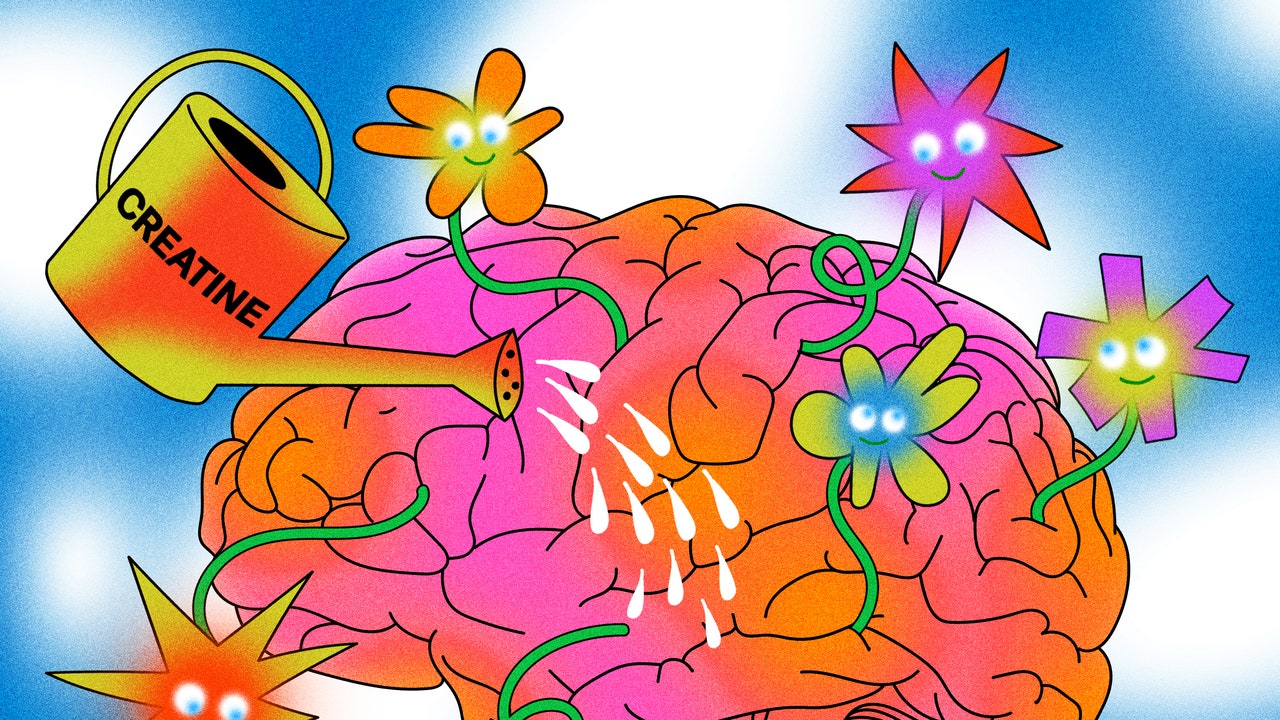In addition to giving your brain a boost, creatine may also help bolster its defenses by playing a neuroprotective role in fending off cognitive decline and more. Clinical trials suggest creatine may help delay the progression of certain neurodegenerative diseases, and several studies have found it to be a powerful ally against depression. “I think the cognitive aspect is really under-publicized,” says Dr. Rai.
Adds endurance when the competition heats up
Creatine is widely known as a tool for building muscle and strength, but the supplement can also provide a valuable advantage for cardio and even endurance athletes. “I hope this myth [of creatine just benefitting strength building] will continue to be dispelled,” says Dr. Rai. “From an endurance standpoint, if you think about your slow-twitch versus fast-twitch fibers, they still utilize the creatine pathway for energy production.”
Creatine increases the muscles’ capacity to store glycogen, a type of fuel used to support high-intensity and long-duration exercise. According to a 2012 study, creatine may also improve aerobic endurance and power output (take note, triathletes) and potentially increase the body’s oxygen consumption efficiency. “There is also data out there that creatine supplementation, when used in conjunction with exercise that is meant to improve your VO2 max, has been shown to have a greater increase than just exercise alone,” says Rai. There’s even research showing that creatine can help endurance athletes extend their time to exhaustion when performing in the heat by lowering their core body temperature.
Speeds post-activity recovery
Whether you’re into strength training, cardio, endurance sports, or weeknight pick-up games, creatine seems to be an effective way to speed up muscle recovery between sessions. “What we know is that it helps the muscles store glycogen—even better than other post-workout supplements that you can take—and that’s what allows the body to recover from exercise,” says King.
We also know that creatine helps power the cells responsible for repairing muscle fibers after workouts. Combined, these factors have a quantifiable effect on accelerating post-workout recovery and getting you back on the bike, bench, or basketball court faster. A recent study found that creatine can accelerate recovery after bouts of intense exercise while also reducing muscle soreness in the hours and days following. The study’s authors suggest it may even be a helpful tool for speeding up recovery from injury.
Supports your heart and circulatory system
Most of the creatine in our bodies is stored in our muscles, which, of course, includes the heart. In fact, ATP is the heart’s primary energy source, and research has found that creatine supplementation supports a healthy heart rhythm and even increases overall heart efficiency.
Creatine has been shown to help lower levels of triglycerides, a type of fat found in the blood. At high levels, triglycerides can play a role in the hardening and thickening of the arteries, increasing the risk of heart disease and stroke while impacting everything from cognitive function to sexual performance. In that same vein, literally speaking, creatine also helps bring down levels of homocysteine, a naturally occurring amino acid that can damage the arterial linings, potentially leading to blood clots or coronary artery disease down the line.
“One of the big positives from an efficacy standpoint is the fact that [creatine] has been shown to have a relatively quick time to onset, as in you’re seeing improvements within one to four weeks,” says Dr. Rai. Just check with your doctor before getting started, he says, particularly if you have any known kidney or liver issues.

